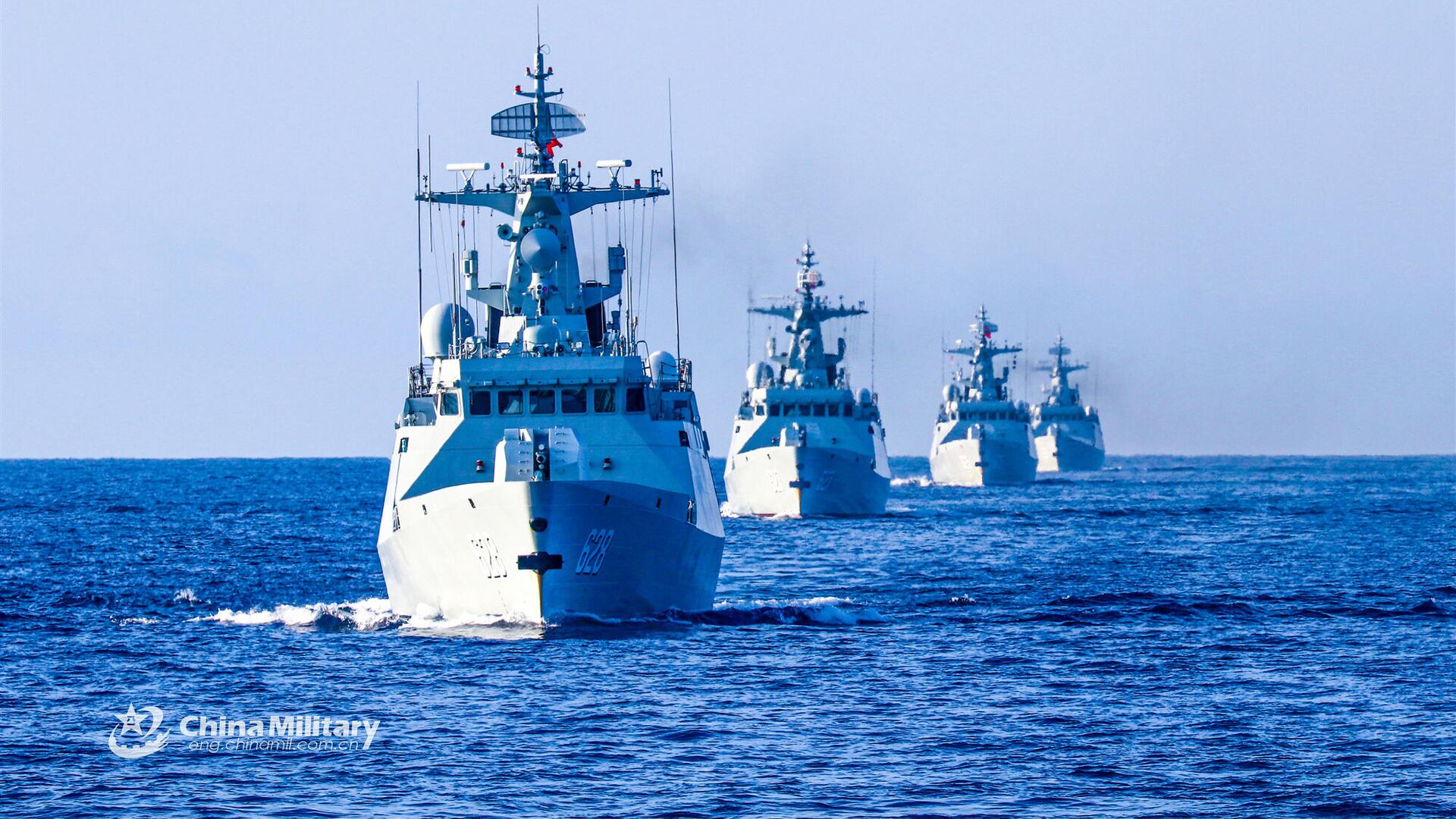https://sputnikglobe.com/20240312/philippine-foreign-ministry-says-some-of-chinas-proposals-on-south-china-sea-workable-1117288193.html
Philippine Foreign Ministry Says Some of China's Proposals on South China Sea 'Workable'
Philippine Foreign Ministry Says Some of China's Proposals on South China Sea 'Workable'
Sputnik International
Some of China's proposals to the Philippines concerning the territorial disputes between the two countries over areas in the South China Sea are "somewhat workable" while many are against the country' interests, the Philippine Foreign Ministry said on Tuesday
2024-03-12T17:35+0000
2024-03-12T17:35+0000
2024-03-12T17:35+0000
asia
china
philippines
south china sea
https://cdn1.img.sputnikglobe.com/img/07e5/0a/05/1089667452_0:157:2000:1282_1920x0_80_0_0_e5132149a0c857442a16c417b07c603f.jpg
The ministry made a reference to an article titled "Chinese Official: PH ignored China's proposals on sea row," published in The Manila Times newspaper on Monday, saying that it had received concept papers from China on the issue in 2023 and had "undertaken serious study and consideration" of the proposals. After reviewing the proposals, Manila presented its counterproposals to Beijing in 2023 and the issue was discussed during the 8th Bilateral Consultation Meeting on the south china sea in Shanghai in January, the ministry added. In July 2016, following a lawsuit filed by the Philippines, the Permanent Court of Arbitration in The Hague ruled that China has no grounds for territorial claims in the South China Sea. The court ruled that the islands are not disputed territory and do not constitute an exclusive economic zone, but Beijing refused to recognize or accept the ruling.
https://sputnikglobe.com/20240223/slumbering-joe-overshadowed-chinese-mock-us-show-of-force-in-western-pacific-1116933848.html
china
philippines
south china sea
Sputnik International
feedback@sputniknews.com
+74956456601
MIA „Rossiya Segodnya“
2024
Sputnik International
feedback@sputniknews.com
+74956456601
MIA „Rossiya Segodnya“
News
en_EN
Sputnik International
feedback@sputniknews.com
+74956456601
MIA „Rossiya Segodnya“
Sputnik International
feedback@sputniknews.com
+74956456601
MIA „Rossiya Segodnya“
china vs philippines, china philippines dispute, disputes over south china sea
china vs philippines, china philippines dispute, disputes over south china sea
Philippine Foreign Ministry Says Some of China's Proposals on South China Sea 'Workable'
MOSCOW (Sputnik) - Some of China's proposals to the Philippines concerning the territorial disputes between the two countries over areas in the South China Sea are "somewhat workable" while many are against the country' interests, the Philippine Foreign Ministry said on Tuesday.
The ministry made a reference to an article titled "Chinese Official: PH ignored China's proposals on sea row," published in The Manila Times newspaper on Monday, saying that it had received concept papers from China on the issue in 2023 and had "undertaken serious study and consideration" of the proposals.
"While a few proposals were deemed somewhat workable, many of the remaining Chinese proposals were determined, after careful study, scrutiny and deliberation within the Philippine Government, to be contrary to our national interests," the ministry said in a statement.
After reviewing the proposals,
Manila presented its counterproposals to Beijing in 2023 and the issue was discussed during the 8th Bilateral Consultation Meeting on the south china sea in Shanghai in January, the ministry added.

23 February 2024, 08:05 GMT
The territorial affiliation of a number of islands and reefs in the South China Sea has been the subject of disputes between China, the Philippines and several other Asia-Pacific countries for decades. Significant oil and gas reserves have been discovered on the continental shelf of those islands, including the Paracel Islands, Thitu Island, Scarborough Shoal and the Spratly Islands, with the Whitson Reef being part.
In July 2016, following a lawsuit filed by the Philippines, the Permanent Court of Arbitration in The Hague ruled that China has no grounds for territorial claims in the South China Sea. The court ruled that the islands are not disputed territory and do not constitute an exclusive economic zone, but
Beijing refused to recognize or accept the ruling.



